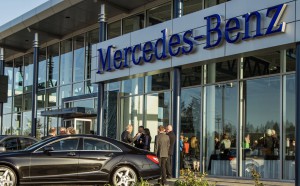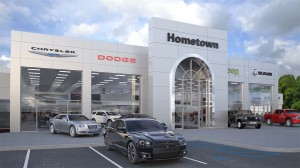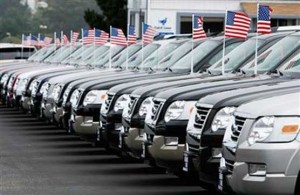
Automakers had better-than-expected sales in May, but incentives are coming down so no one is certain what June will bring.
After flattening out in May, U.S. auto sales ended the month with an unexpected burst of demand, but whether the sudden upturn – that saw many cities actually exceed pre-pandemic forecasts – will last is far from certain.
As May came to an end, automakers began trimming back on some of the lavish incentives they used to keep the market moving as the coronavirus pandemic struck, noted Tyson Jominy, a senior analyst with J.D. Power. And that could wind up turning off buyers who could sit on the sidelines until more lucrative deals get put back on the table, he added.
For the month as a whole, May saw demand dip by 29% compared to pre-pandemic forecasts, according to Power data gleaned from thousands of dealers across the U.S., but that was significantly better than what had originally been expected for the month, said Jominy. And, with many of the “unprecedented incentives” set to expire or be cut back at the beginning of June, showrooms saw a flurry of traffic during the final days of the month, sales for that week just 12% below Power’s original forecast.
(Global industry taking a massive hit; full recovery still years away.)
In Tampa and four other markets, in fact, sales actually exceeded pre-pandemic expectations. In all, 173 markets showed a surge in sales for the week, with even some of the cities particularly hard-hit by COVID-19 outbreaks – such as Detroit, San Francisco and New York – coming close to target.

New vehicle sales were up in some cities compared with some of the places that have been hard hit by the pandemic.
“It was a very strong industry across the board,” said Jominy during the latest in a series of Power webinars looking into the impact of the coronavirus pandemic on the U.S. auto industry.
As the virus spread across the country, leading to broad public lockdowns and the closure of many dealerships, automakers were facing forecasts that anticipated demand plunging as much as 80% in April. The actually number was a decline of less than half, manufacturers rolling out their heaviest weapons in the form of record incentives. On average, that means rebates, low-or no-interest loans and other givebacks averaging about $5,000 a vehicle. Full-size pickups, which were barely impacted by the pandemic, carried incentives of as much as $7,300, on average.
Without these deal, “unquestionably, yes,” the industry risked significant damage, such as the failure of many dealers, said Thomas King, Power’s chief data officer.
(Mazda bucks industry trend, posts sales gain in May.)
That said, the incentives hammered industry balance sheets at a time when they would have U.S. factories out of production by about two months. A separate study released on Thursday by consultancy AlixPartners warned that the industry is facing an extended “profit desert,” the pandemic being the primary reason.
Not surprisingly, automakers have been hoping to phase back on the lavish givebacks. A number of the 84-month, zero-interest loans that were so common from March through May have been dropped or reduced, as have other incentives.
So, “For the month of June, the question is how consumers (will be) responding to the step back in incentives,” said King. If sales slow down again, he added, he expects “we could see a step up on incentives,” though rather than using a blunderbuss approach, the industry is “much more likely to see (programs) that are targeted” at products and market segments that show signs of weakness, he said.
While demand has remained stronger than many feared during the pandemic lockdowns, the industry will still see 2020 dip to levels not found since the early days of recovery from the Great Recession. All in, Power anticipates full-year volumes of somewhere between 12.9 million and 14.2 million. That’s down from 17.1 million in 2019, and a pre-pandemic forecast for this year of around 16.8 million.
(May sales to drop as fleet sales collapse.)
“It’s a big step back from where we should have been” if the coronavirus hadn’t struck, said King.

